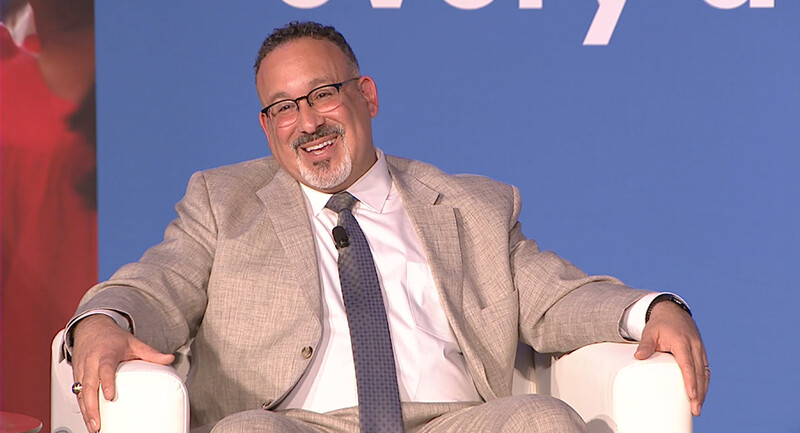Federal funding is top of mind for many education leaders as the U.S. government’s new fiscal year—FY22—began on October 1.
There are three major funding bills pending in Congress that would provide significant resources to education. You’ve probably heard something about the interplay of the bills and the negotiations among President Biden and House and Senate congressional leaders. But what exactly is in the bills? Here is a summary of the education funding allocated in each:
1. Infrastructure Bill
Earlier this summer, the Senate passed a bill that would help build, repair, and generally modernize infrastructure such as roads, bridges, ports, and airports. It includes funding for several education-related infrastructure projects, such as $65 billion for broadband access and devices to help families access the internet, $5 billion for clean-energy school buses, $500 million for schools to improve their energy efficiency, and $200 million to remove lead from school drinking water. The House is expected to vote on this bill by the end of the month. Since the Senate already passed this legislation, House approval would send it to the President for his signature and enactment.
2. Reconciliation Bill
Also known as the American Families Plan, part of President Biden’s “Build Back Better” agenda, the reconciliation bill is a unique once-a-fiscal-year piece of legislation that provides funding for government programs over 10 years and only requires majority votes in the House and Senate (which otherwise requires 60 votes to proceed). This legislation would provide more than $1 trillion (the exact figure is yet to be finalized) toward key administration priorities. It is the subject of intense negotiations between the White House, congressional leaders, the progressive and conservative factions in the House, as well as Senators Joe Manchin (D-WV) and Kirsten Sinema (D-AZ).
The House Education Committee approved major funding increases for education in their reconciliation bill, although most of the funding is being directed to early childhood education and postsecondary education (elementary and secondary education received $123 billion in COVID-19 relief funding via the American Rescue Plan in March). Nevertheless, the bill does include $82 billion for K-12 school construction. Other education-related funding highlights include:
- $450 billion for childcare and universal preschool for 3- and 4-year-olds
- $111 billion for postsecondary assistance
- $82 billion for school construction
- $35 billion for child nutrition
- $4 billion for internet connectivity
- $1 billion for teacher training
The full House is expected to vote on this comprehensive package in the near future and then send it to the Senate for consideration.
3. FY22 Appropriations Bill
Not to be overlooked among these one-time funding bills is the annual appropriations legislation. The House passed its FY22 education spending bill this summer. It includes major increases for federal K-12 programs:
- +$20 billion for Title I ($36.8 billion total or 118 percent increase!)
- +$2.6 billion for IDEA ($15.5 billion total)
- +$150 million for Title II professional development grants ($2.3 billion total)
- +$1.4 billion for full-service community schools ($1.7 billion total)
- +$200 million (25 percent) for English language acquisition grants ($1 billion total)
It is unclear whether the Senate will put forward their own FY22 education appropriations bill or consolidate multiple spending bills into an omnibus package to be negotiated in total with the House. The only thing for certain is that the FY22 appropriations levels will only be settled after the aforementioned infrastructure and reconciliation bills are finalized.
Stay tuned for further developments and the fate of these three interconnected bills that will have a significant impact on education funding for the next several years.





